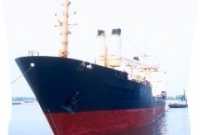Boaz Hirsch, Deputy Director General for Foreign Trade at Israel’s Ministry of Industry, Trade and Labor, will officially serve as chair
At the latest meeting of the Kimberley Process (KP), which took place in Namibia on Thursday, November 5, 2009, Israel was elected to assume the chairmanship from 2010. Boaz Hirsch, Deputy Director General for Foreign Trade at Israel’s Ministry of Industry, Trade and Labor, will officially serve as chair.
The "Kimberley Process" imposes extensive requirements on its members to enable them to certify shipments of rough diamonds as "conflict-free." The process aims to prevent the flow of conflict diamonds, while helping to protect legitimate trade in rough diamonds. Its participants are states and regional economic organizations that trade in rough diamonds. The Kimberley Process has 49 members, representing 75 countries, with the European Community and its member states counting as one participant.
Hirsch said that the role is one of great responsibility, which affects the lives of millions of people who depend on the diamond industry for their livelihood and dozens of countries which rely on the diamond industry for their economic development. He said that he saw Israel’s role as chair to be “in creating the momentum to improve the process and to suit it to the new challenges it faces.”
Israel Diamond Controller and head of the KP in Israel, Shmuel Mordechai, said that as head of the KP, Israel will contribute to improving and developing the system first introduced in 2003. According to Mordechai, “Israel will push for the creation of an arbitration committee to settle differences of interpretation pertaining to Kimberley Process decisions, thus allowing the diamond regulation process to address issues as they arise”.
Mordechai added that Israel was one of the founders of the KP and has been a major factor in its development. Israel was the first country to issue a KP Certificate in 2003. “As one of the world’s leading diamond centers, it is natural that Israel should lead this process now,” he said.
The KP was established in 2003 after a three-year debate by a forum of diamond-producing and trading nations. The system successfully enables the regulation of rough diamond transactions in order to prevent trade in conflict diamonds or the use of profits from conflict diamond sales in the funding of resistance groups, arms trade,or the abuse of human and civil rights in countries which produce rough diamonds. Within a short span of seven years, the KP has been able to minimize conflict diamond trade so that it accounts for only one percent of rough diamond trade Israel's diamond industry is starting to recover from a severe decline stemming from the global economic crisis. According to industry reports, the export of rough and polished diamonds in the first nine months of 2009 dropped to $3.9 billion, from $8.5b. the previous year. Imports also dropped, from $7.4b. to $3.1b.
Current estimates suggest that the overall yearly drop will be less than 50% because of an upturn in recent months.
Israel to chair Kimberley Process in 2010
Boaz Hirsch, Deputy Director General for Foreign Trade at Israel’s Ministry of Industry, Trade and Labor, will officially serve as chair
16.11.09 / 00:00
•
More articles that may interest you

Maersk introduces new east-Med to central Europe service

Zim restructuring plan approved

German boxship laden with weaponry intercepted 161 km off Israel’s coast

OECD secretary general scheduled to visit Israel in January 2010

EasyJet launches London-Tel Aviv route

Arkia will operate service from Eilat to St. Petersburg
More news from Industry & Trade Section
>EU, Israel sign new agricultural agreement/10.11.09
>CBS: July - September 2009, import up by 19.5%/02.11.09
>Israel: Avocado exports to increase by 50%/02.11.09
>Ministry of Industry: The top 100 exporters improve their performance/02.11.09
>Israel denies U.N. experts' claims that it is trading with ‘Blood Diamonds’/02.11.09
>US administration removed import levy on Israeli milk products/26.10.09
>Israel's leading economic indicators up in September/26.10.09
>Finance Minister Dr. Yuval Steinitz boosts aid to exporters/19.10.09
>Israel Polished Diamond Exports declined to US$2.6 billion/19.10.09
>CBS: Inflation rate fell to 2.8% in September, within Government target/19.10.09
